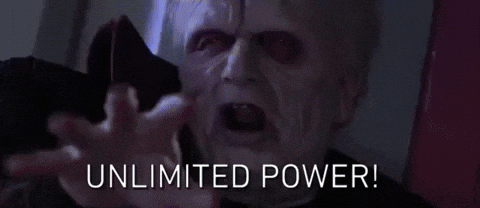Laughing Matters: The Importance of Humor in Content
- iw2write@gmail.com
- May 27, 2025
- 4 min read
Updated: May 28, 2025
"The best ideas come as jokes. Make your thinking as funny as possible." - David Ogilvy.
Humor in content goes way, way, back. Goes back People are going online to search for funny. That's not something new. But as far as advertising and content goes, humor has been a staple - and not just because "it's funny" - but because it works. Humor can help enhance brand visibilty, humanize the brand, and help build customer loyalty. So let's see how laughing matters: The Importance of Humor in Content.
In a 2023 Keynote speech at Cannes, Andrew Robertson, CEO at creative agency BBDO Worldwide, urged marketers to return to humor. "If brands are truly looking to make the world a better place," he said, "we could do a lot worse than make people laugh." Which is good advice in general, not just in advertising. According to a study by Oracle, 90% of consumers say they'll more likely remember a funny ad, and 72% would select a humorous brand over the competion." Funny, eh?
By the way, you know how comedians did A/B testing? On the stage. Any comedian takes his material and tests it on small audiences before taking it to bigger crowds. Back in the 1920s & 1930s, the Marx Brothers and other comedians went out and tested their material in Vaudeville and other places. Buth those were places with live audiences, not videos or social media ads that cost money. It was simple: If the room laughed - you knew the material 'killed.' If you got crickets - it needed rewrites. Same thing with your copywriting and content: If it didn't 'kill' - it needs rewrites...
Let's be honset: You and your creative/marketing team work hard producing content, be it advertising in all forms copywriting (Facebook/Google ads), social media, landing pages, etc. And every day (or week, or month), people keep try to "reinvent the wheel" in one form or another. "Repurpose" content. Cut, reshuffle, reassemble, rebrand, re-tailor, etc., etc. How to, where to, why to, why not to...the list goes on and on.

There's an old Seinfeld episode, where one character has to speak up before a crowd and realizes he's unprepared for that type of crowd. So, what does he do? Rip off material from Seinfeld...
Let's take the Super Bowl. Companies spend billions on super bowl ads, a good number of which are filled with humor and celebrities, like this Uber Eats Super Bowl ad with Matthew McConahay. Or this Captain Morgan ad, for istance. The fact that there's so many examples, both on print, video and online, speaks for itself. Even for newsletters and emails:

In addition, you have seasonal humor: Thanksgiving, Christmas, Easter, and cultural seasons ("while our IT guy may not win an Oscar, he can..."). Or: It may seem like six more weeks of winter, but with our fleece jacket, you won't feel a thing."
What type of humor should you use? That's up to you and your content/marketing managers. Assuming a suit-and-tie crowd won't be much appreciative to a pie-in-the-face stunt during a live presentation, you can take a real-life situation they're well familiar with and put a humorous spin on it. For example: How about a board meeting where everyone speaks corporate jargon and everyone pretends to understand everyone while nobody understands anything? You can take that concept and use it in a video, blog, social media post - whatever.
Of course, it's most things advertising and content, it's important to know your audience. Just like a comedian prepares his material to fit for the crowd he's performing to.
Which leads us to the second point the content humor also needs to be relatable. Which means making sure the audience understands the context, brand personality, etc.

There's so much content today, people needs apps just to track and bookmark their prefered subjects. Companies are egging them on to subscribe to their monthly/weekly newsletters. Content creators are trying to reinvent the wheel in order to come up with something fresh and original (which you don't have to, all the time, by the way).
How to/ 10 different ways to avoid (or improve)/ step-by-step guide/7 ways to improve...and so forth.
Instead, how about: 5 witty and highly effective ways to increase customer engagement? How to make your customer leave with a smile? How to prepare your Thanksgiving dinner without losing your sanity - Part I? etc.
Humor is a serious business. In movies, shows, literature or advertising. The only thing more effective than humor, perhaps, is the "shock" approach, but that's a double-edged sword. If it wins, it wins big. But if it loses...
Whether in print, audio or video, humor's been advertising's weapon of choice to grab consumer's attention and make the ad memorable (today we call that "making it go viral." and there's no reason why you can't use it in your content. Of course, there's a time and place for everything, and I wouldn't start a PR release with a 'knock-knock' joke, but what humor can do is open a whole new world of possibilities to change pace and offer your users/readers/buyers something new that they haven't seen, heard or read before. And that can be stimulating to the brain, not to mention entertaining.








Comments